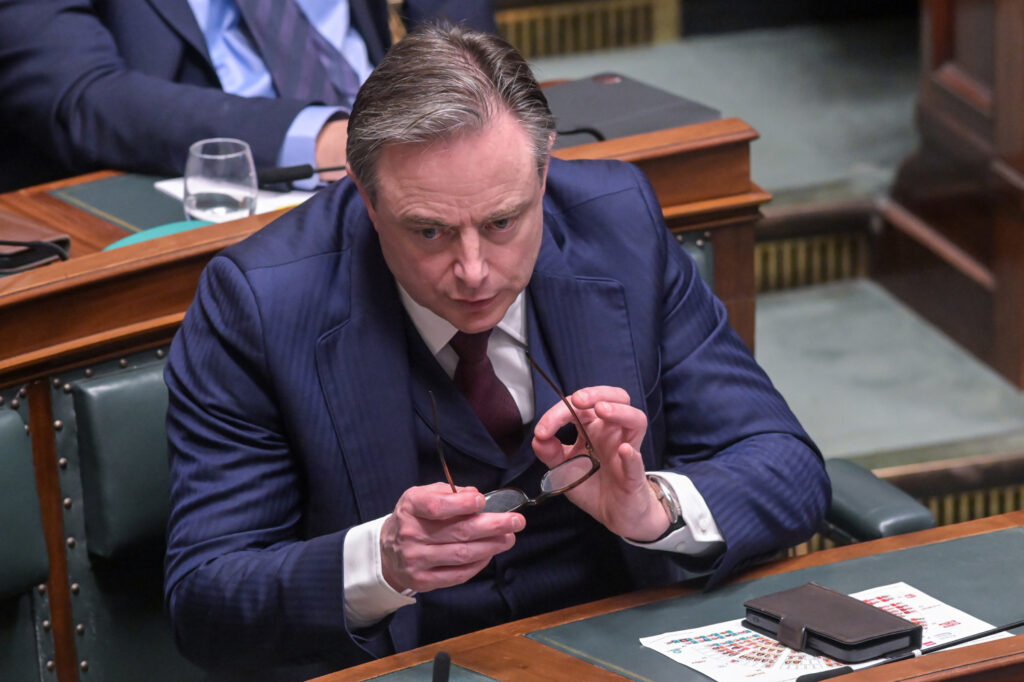There is no secret agreement on the capital gains tax "nor on any other subject," Prime Minister Bart De Wever said on Thursday during the parliamentary question time.
De Wever was responding to questions from Pierre-Yves Dermagne (PS), Vincent Van Quickenborne (Open VLD), and Lode Vereeck (Vlaams Belang) about a controversial "note" discussed over the weekend.
MR leader Georges-Louis Bouchez had suggested in interviews that, in addition to the coalition agreement, there was a note promising that the capital gains tax would not be imposed on shares held for more than ten years, supposedly signed by De Wever. The Prime Minister refused to disclose this note to parliament and instead stressed that no such agreement exists. He said that whilst various notes circulate during negotiations, "what matters is the final text of the agreement, which everyone can read transparently."
To know the details of the yet-to-be-introduced capital gains tax, it is "as always" necessary to wait for the legislative proposals, De Wever said. "These proposals may contain provisions not included in the coalition agreement and will be discussed within the government," he added.
Dermagne said that the mixed messages mark a "difficult and even sad start" for the government. "And we know there are other secret agreements," he said, hinting at a potential deal on increasing the legal working hours to 40 per week.
Van Quickenborne noted that De Wever did not want to repeat the claim that there would be an exemption for those holding shares for more than 10 years – a statement he had made immediately after the coalition negotiations in front of TV cameras. "You are abandoning the middle class," he argued.
Vereeck took up the attack, saying that the Arizona government is "creating uncertainty" and claiming "it will mainly be the Flemish who will pay this tax."
The debate eventually deteriorated into a noisy argument between Dermagne and Bouchez. The latter claimed he would not be "so foolish as to explain in a newspaper that there is a secret agreement." Bouchez was ultimately forced to concede that "there is no secret agreement" but there are "working documents open to interpretation."

